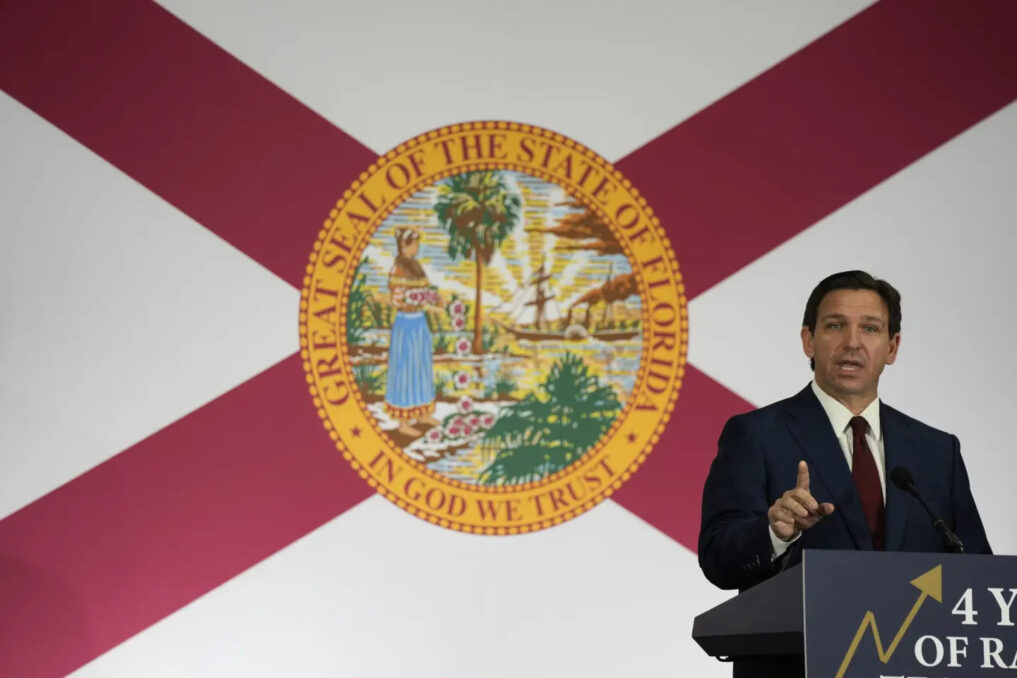A Florida immigration law that took effect on Saturday has caused distress among migrant workers in the state. On May 10th, Florida Governor Ron DeSantis signed Senate Bill 1718, a controversial legislation to change the state’s immigration policies significantly. The new law, introduced by the Republican governor, is a response to the anticipated increase in immigration at the border following the lifting of Title 42 restrictions imposed during the COVID pandemic. As a result, undocumented immigrants will face severe penalties and new restrictions, potentially leading them to leave the state.
Considered the most stringent crackdown on undocumented immigration in over a decade, Florida’s new immigration bill has instilled fear of separation among undocumented migrants, many of whom work in the tourism and hospitality industry, construction sites, and agricultural fields. Reports from Florida indicate that people have become anxious and stressed, uncertain about their future in the state.
What Does the New Immigration Law Entail?

Image Source: Associated Press
The new law encompasses broad changes that will adversely affect thousands of undocumented migrants in Florida. One provision prohibits counties and municipalities from providing funds to individuals, entities, or organisations for issuing identification documents to those who cannot demonstrate their legal presence in the United States. The law also expands the E-verify system, mandating employers with more than 25 employees to verify their staff’s immigration status. Additionally, certain hospitals are now required to collect patient immigration status data during admission or registration, potentially jeopardising the health of undocumented migrants and increasing healthcare costs.
Moreover, the law invalidates certain driver licenses and permits issued by other states exclusively to unauthorised immigrants, with possession of such documents potentially leading to court appearances or arrest. It criminalises the transportation of undocumented immigrants within or across Florida, labelling those who do so as “human smugglers.” Furthermore, the law restricts access to community identification programs for legal state residents in Florida by prohibiting new funds for such initiatives targeting undocumented migrants.
These changes have heightened fear among immigrant families in Florida, negatively impacting their daily lives, physical health, and mental well-being.
DeSantis’s Stance on Immigration
On May 24th, Ron DeSantis announced his 2024 presidential campaign. The hardline Republican, who was elected to the House of Representatives in 2012, and then reelected in 2014 and 2016, seeks the Republican Party nomination for the 2024 presidential primaries. DeSantis has been a vocal critic of President Joe Biden’s border policy, making illegal immigration a key priority of his administration. During his campaign, he has emphasised his commitment to completing the construction of the Mexican Wall initiated by former President Donald Trump. Consequently, Florida’s new immigration law offers a glimpse into DeSantis’s prospective immigration policy if he were to secure the White House in 2024.
Protests Emerge in Florida Communities

Image Source: Associated Press
Communities throughout Florida staged protests across the state on Saturday, expressing solidarity with those affected by the new law. Protesters criticised it, asserting that the law portrays Florida as unwelcoming to outsiders.
In response to the protests, DeSantis’s office issued a statement justifying their support for SB 1718 by asserting that it serves as a response to the challenges posed by unlawful immigration in Florida. They argued that the Biden Administration’s failure to secure the southern border has allowed this problem to persist. Furthermore, they criticised the media for intentionally blurring the line between legal and illegal immigration, generating unwarranted outrage based on a distorted foundation.
Following the law’s implementation, Mexico condemned Florida for its strict immigration stance, alleging that the law is rooted in xenophobia and white nationalism.













